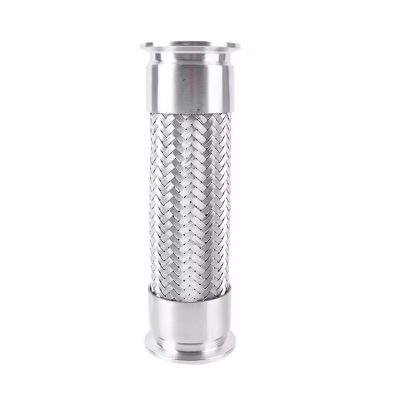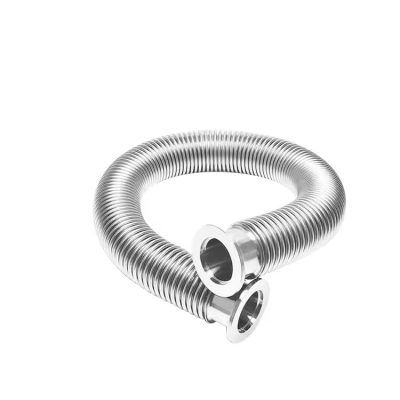Marine environments present unique challenges for equipment and components, including metal hoses. In marine applications, metal hoses are essential for their reliability, strength, and ability to withstand the harsh conditions of seafaring environments. They play a crucial role in ensuring the safe and efficient operation of marine systems.
Pressure and Temperature Tolerance: Marine systems often deal with high pressures and extreme temperatures, whether in fuel systems, hydraulic systems, or cooling systems. Metal hoses are engineered to handle these demanding conditions, providing reliable fluid and gas transfer under high pressures and varying temperatures. Their performance ensures that marine systems operate safely and efficiently.
Corrosion Resistance: Exposure to seawater and other corrosive elements makes corrosion resistance a critical feature for marine hoses. Metal hoses used in marine applications are constructed from corrosion-resistant materials, such as stainless steel alloys, to withstand the harsh marine environment. This resistance prevents degradation and ensures long-term durability and reliability.
Durability in Harsh Environments: Marine environments can be tough on equipment due to factors like salt, moisture, and physical impacts. Metal hoses are designed to endure these harsh conditions, maintaining their structural integrity and performance even in challenging environments. Their durability reduces the risk of hose failure and extends the service life of marine systems.
Flexibility for Installation: The flexibility of metal hoses is important in marine applications where space can be constrained and routing complex. Metal hoses can be bent and routed around obstacles without kinking or collapsing, facilitating easier installation and maintenance. This flexibility helps ensure smooth fluid and gas transfer in marine systems.
Safety and Reliability: In marine applications, safety is paramount. Metal hoses provide reliable performance that helps prevent leaks and failures, which could have serious consequences at sea. Their strength and resilience contribute to the overall safety of marine systems, ensuring that equipment operates reliably and efficiently under demanding conditions.








